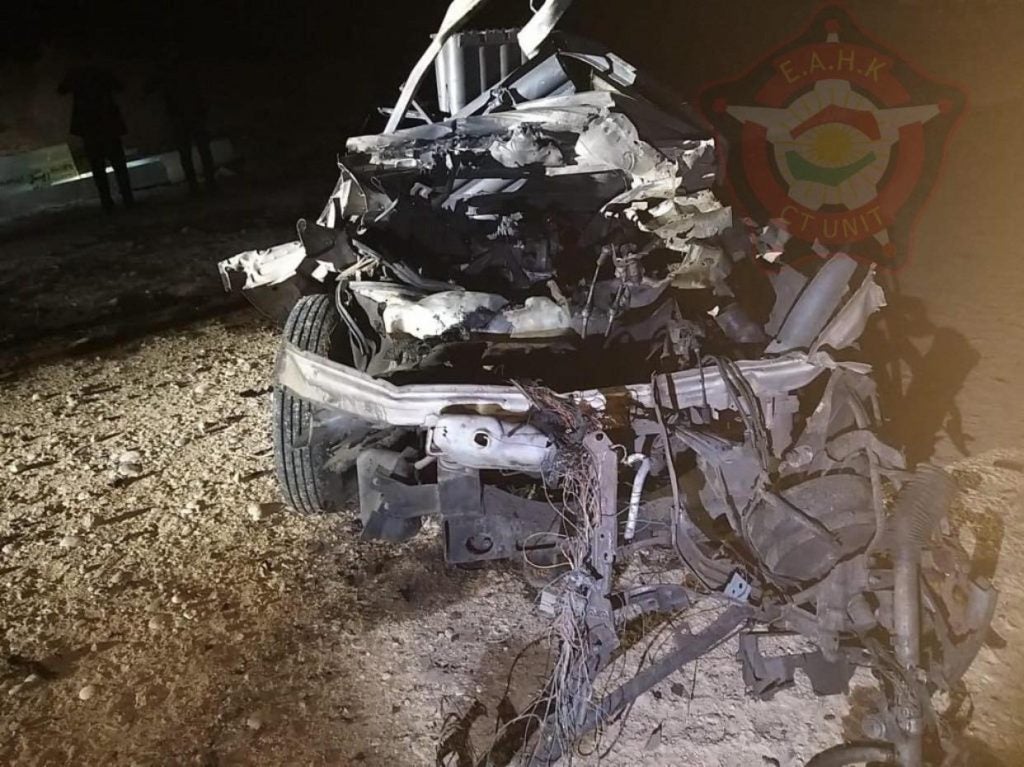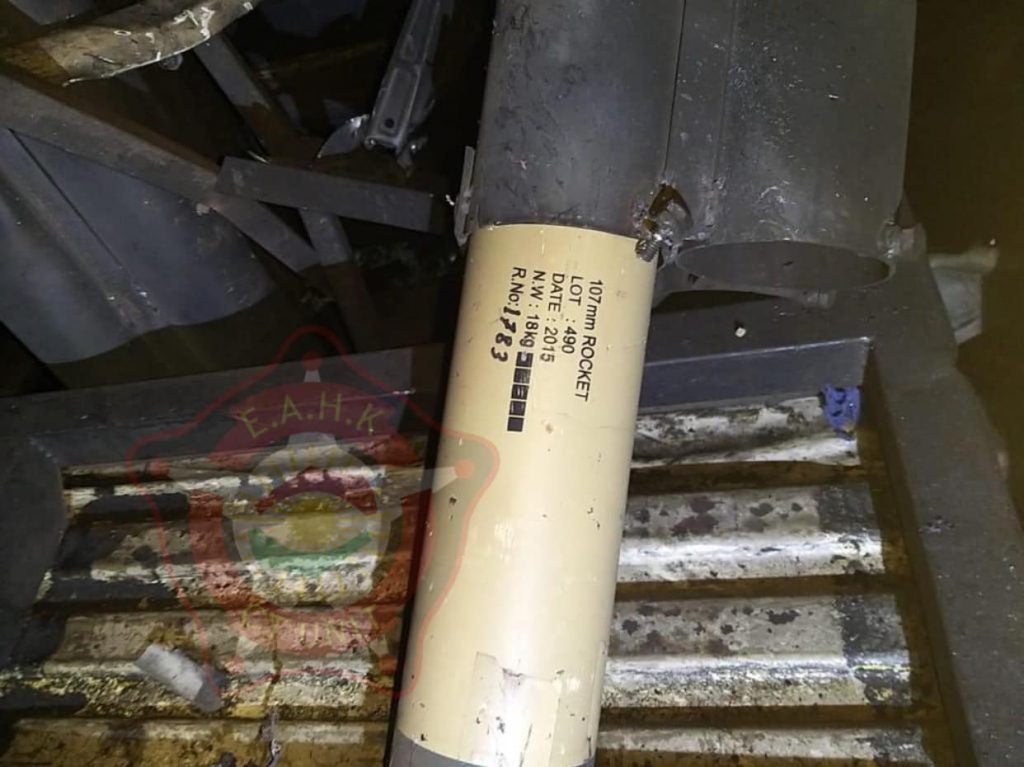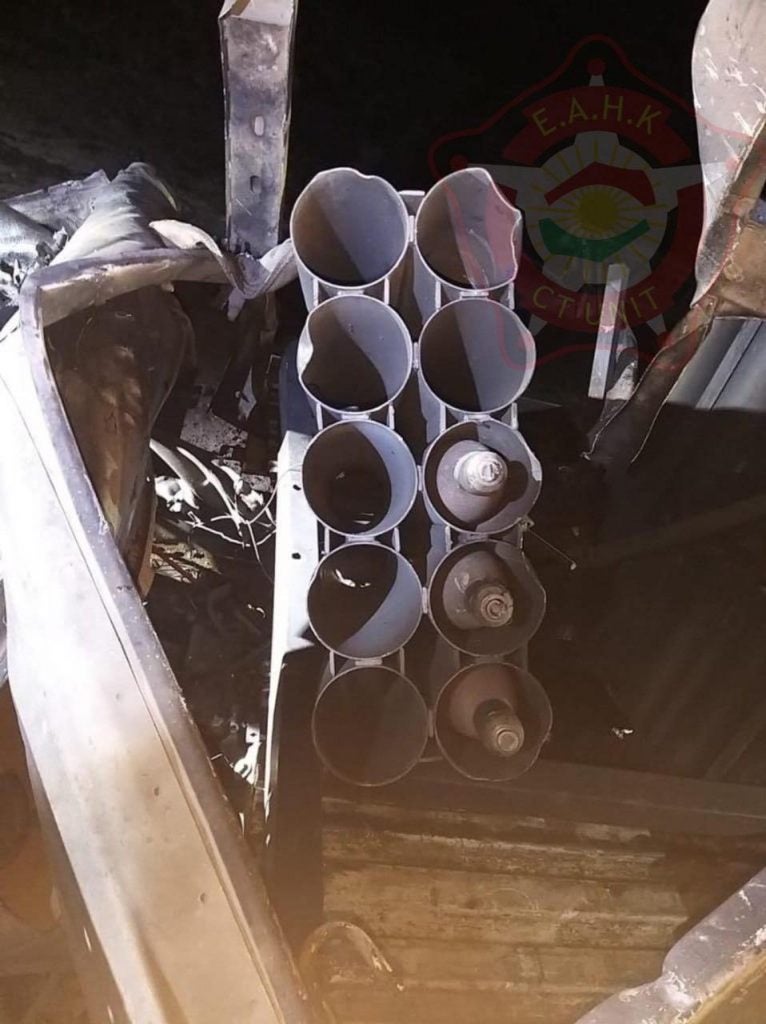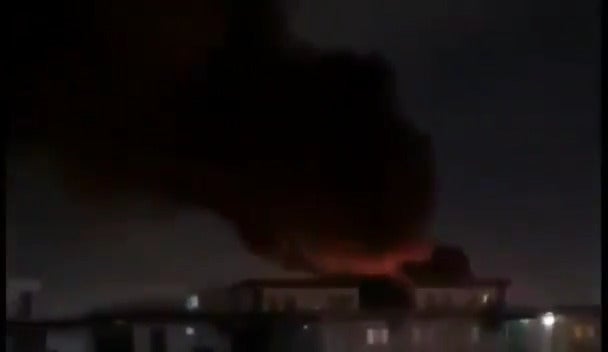Rocket Attack on Erbil Airport Kills Civilian Contractor
Operation Inherent Resolve spokesman Colonel Wayne Marotto stated earlier today that a civilian contractor killed in a rocket attack on Erbil Airport yesterday night was not a US national. The statement follows speculation that the one confirmed death due to the attack was a US citizen.
According to Col. Marotto’s statement on Twitter, nine other individuals were injured in the attack, with eight being civilian contractors and a single US service member. Out of these, four US contractors and the US service member are being treated for concussions.
The attack was carried out using 14 107mm rockets. Three of the 14 rockets landed within Erbil Airport at approximately 9:30 PM local time. Amateur and security camera footage from around Erbil show several other rockets from the barrage impacting other parts of Erbil, including residential areas, with local media reporting three civilians injured by the stray rockets.

Kurdish security forces and members of the coalition have since discovered a vehicle on the Erbil-Gwer road that they believe to have carried the launcher of the rockets. Photographs released show unfired rockets still within their tubes. The rockets and another rocket that failed to detonate after impacting near a Peshmerga base appear to be Iranian-made Fadjr-1 rockets.
While the Iranian Foreign Ministry has denied any relation to the rocket attack, the group that has claimed responsibility for the attack, Saraya Awliya al-Dam (Guardians of Blood Brigades) is believed to be a front name for an Iranian-trained and supplied Popular Mobilization Unit. These front names are used to obfuscate the true identities of attackers, in a bid to avoid implicating Tehran’s involvement in attacks that use Iranian weaponry.

The attack has drawn widespread condemnation from inside and outside Iraq. Iraqi President Barham Salih tweeted that the attack was a “dangerous escalation” that targeted Iraqi efforts to secure Iraq, while the Kurdistan Regional Government’s Peshmerga ministry said that any attack targeting Coalition forces was an attack on the Peshmerga and Kurdish civilians as well.

France, the United Kingdom, Germany, the United Arab Emirates, Saudi Arabia, China, Turkey, the Netherlands, Finland and Norway have issued statements condemning the attack as of writing. US Secretary of State Antony Blinken said that the US was “outraged” over the attack, in addition to expressing condolences to the family of the killed contractor.
Given both the weaponry and perpetrators involved, it’s difficult to see how Iran could actually construct an alibi for the attack. Certainly, a strong case could be made that this is the beginning of Iranian tests of the Biden presidency’s Middle Eastern team, with Iran angling to gain as much leverage as it can should talks to renew the JCPOA return anytime soon.

